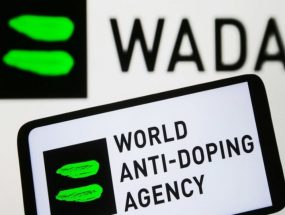Anti-doping organizations
1,099 views, 06.05.2024
The fight against doping in sports is coordinated by several organizations at the international and national levels. These organizations are responsible for creating regulations, conducting testing, and imposing sanctions on athletes and support personnel found violating anti-doping rules. Here are some of the key organizations that control doping in sports:
World Anti-Doping Agency (WADA)
WADA is an international, independent organization that was founded in 1999. It leads and coordinates the global effort against doping in sports by establishing and updating the World Anti-Doping Code, which sets standards for anti-doping policies and testing worldwide. It also maintains the annually updated list of prohibited substances and methods and oversees the Athlete Biological Passport program.
National Anti-Doping Organizations (NADOs)
Each country generally has a national anti-doping organization responsible for enforcing WADA’s code at the national level. Some notable NADOs include:
US Anti-Doping Agency (USADA): Responsible for the U.S. athletes.
UK Anti-Doping (UKAD): Manages anti-doping efforts in the United Kingdom.
Australian Sports Anti-Doping Authority (ASADA): Oversees anti-doping policies in Australia.
International Federations (IFs)
International federations are the global governing bodies for specific sports, such as FIFA (football/soccer), UCI (cycling), and IAAF (track and field). They have their own anti-doping rules, which are in line with the World Anti-Doping Code, and are responsible for testing athletes during international competitions.
International Olympic Committee (IOC)
The IOC, which oversees the Olympic Games, conducts comprehensive anti-doping programs during the Olympics and collaborates with WADA to establish uniform anti-doping rules for the Games.
Court of Arbitration for Sport (CAS)
The CAS acts as a judicial body that handles disputes arising from sports, including anti-doping cases. It is the final arbitrator for appeals involving doping sanctions and other disciplinary measures.
UNESCO (United Nations Educational, Scientific and Cultural Organization)
UNESCO supports anti-doping efforts globally by promoting the International Convention Against Doping in Sport, an international agreement that seeks to harmonize anti-doping regulations worldwide and encourage member states to comply with the WADA code.
Regional Anti-Doping Organizations (RADOs)
RADOs help coordinate anti-doping activities in regions where resources or infrastructure may be limited. They offer support for implementing anti-doping policies and provide education.
Athlete Biological Passport (ABP)
Though not an organization itself, the ABP is an important tool managed by various organizations to monitor biological markers of athletes over time. The program helps detect changes that may indicate doping, even if specific substances are not found.
These organizations collectively help to ensure fair play and the integrity of sports by implementing robust anti-doping measures, conducting rigorous testing, and promoting education. They work together to continuously update policies and refine testing methods to keep up with the evolving challenges posed by those who seek to cheat the system.





